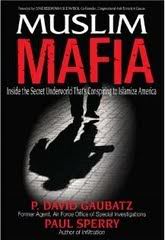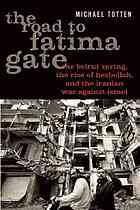By Alexander Levkovsky
The wide sidewalk in front of that majestic building was occupied, on both sides, by stacks of books, leaving just a narrow path for numerous visitors, obviously interested in literature. Not any literature, but ultra-nationalist, chauvinistic one, and, particularly, the most popular brand of it - the anti-Semitic writings.
From 1994 to 2003, whenever I found myself in the capital of my former homeland, Moscow, I used to come without fail to that place in order to replenish my library of paperback and hardcover books, devoted to elaborate and multifaceted Jew-hating. This marketplace of bigotry and hatred (which, by the way, didn't attract even the slightest police attention) was located in downtown, in front of an institution, whose name sounded lofty, dignified, and even noble - The Moscow Museum of History.
It was an old structure, sitting at the intersection of Red Square and Manezh Plaza. Before the collapse of "the first proletarian state" in 1991, the museum was abundant in exhibitions of spectacular past of the Imperial Russia and glorious present of the Soviet Union.
Nobody, however, could have imagined at the time the filthy nature of this anti-Semitic market/exhibition, which would occupy, several years later, the sidewalk next to the museum entrance.
In my mind, I've long ago invented a name for it - The Axis of Evil Exhibition.
Remember the famous Axis of Evil speech, pronounced by President George W. Bush? On January 29, 2002, Mr. Bush proclaimed: "...States like these [North Korea, Iran, and Iraq], and their terrorist allies, constitute an axis of evil, [threatening] the peace of the world..." With just three states, denounced by the former President, it seemed to be quite a short axis, indeed. Even with the additional roster of such patented evildoers as Syria, Hezbollah, Hamas, Sudan, and Al-Qaida, the axis is still not very long.
Not so with my axis. Both in space and time, this axis is as long as the history of the world itself. And it's not the history of states I'm talking about; it's the history of book authors - some famous, others obscure; some ancient, others contemporary - who devoted so much time and effort accusing, belittling and denigrating Jews as people and Jewish faith as religion.
They all sit on a shelf in my room, side by side, as if feeling some sort of camaraderie -- the old company of famous Jew-haters. I see their names on the spines of the books: the Roman historian Tacitus, the French philosopher Voltaire, the American inventor Thomas Edison, the Russian writer Dostoyevsky, the German philosopher Immanuel Kant, the Russian Emperor Nicolas II, the American industrialist Henry Ford, the British playwright George Bernard Shaw, the American writer Theodore Dreiser...
I remember how I selected these authors. Standing in the crowd of jingoistic Muscovites, I leafed through the books, reading with the increasing sense of disgust the most outlandish and outrageous anti-Semitic declarations.
Then why did I pay my hard-earned money for all that mud? Why did I continue to collect this muck?
Because I had to see -- face to face -- the bigots and jingoes who hated me. Because in order to fight your enemies, you should know them.
An emaciated, wrinkled, and toothless old man, known as Uncle Vasya, was one of the regular peddlers at this foul market. On my last visit to Moscow, in 2003, he sold me a hardcover tome of Hitler's Mein Kampf and a paperback edition of The Protocols of the Elders of Zion. Of course, he didn't know I was a Jew, and he had no idea he was dealing with an American. As usual, he was half-drunk. Waiving his hand, he greeted me, grabbed me by the sleeve, and shoved two books into my hands. I glanced at the covers: Richard Wagner, Jewry in Music and Alexander Solzhenitsyn, Two Hundred Years Together.
"You'll like the books, believe me," said Uncle Vasya; the strong smell of vodka emanated from his mouth.
I knew beforehand what kind of "love" I would feel toward these books. Nevertheless, I readily paid for the volumes, and left.
On my return home, I went through each and every page, trying to comprehend what on earth had forced those famous figures to take up the pen and add their loud voices to the centuries-old anti-Semitic choir.
One writer spent a lot of energy trying in vain to prove that Jews, just because they were Jews, couldn't be good composers.
The other produced more than one thousand pages filled with numerous libelous distortions of two hundred years of Russian-Jewish coexistence in the Imperial Russia and its heir, the Soviet Union.
Both books are now sitting on a special shelf in my room, within a comfortable company of other bigots and jingoes. Both have now become "honorable" members of my Axis of Evil.
Lately, the Russian authorities decided to remove the foul-smelling market from downtown. Obviously, there had been complaints on the part of some bewildered tourists, not accustomed to see such an open exhibition of bigotry. Now the flourishing market and its branches are scattered around the capital, some only a couple of blocks from downtown.
I have the feeling that very soon (probably, on my next visit to Moscow) my collection of Jew-hating books would be replenished. The Israeli newspaper Haaretz reported that some stories, appearing on several Ukrainian Web sites, had claimed that Israel had brought 25,000 Ukrainian children into Israel over the past two years in order to use their organs for medical purposes. And a certain Sergey Ratushnyak, one of the current Ukrainian presidential hopefuls, publicly blames the Holocaust on the Jews, saying they has stolen German property, and warns of the same thing happening now in Ukraine. I think he would probably write a book, with a foreword most likely to be penned by Mahmoud Ahmadinejad or David Irving.











No comments:
Post a Comment